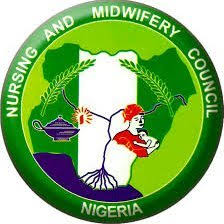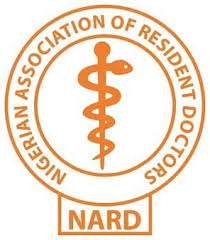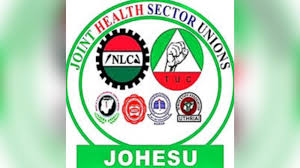Globally, immunization is recognized as the most cost-effective public health intervention. Immunization provides significant savings by avoiding the direct and indirect costs associated with children falling ill from vaaine-preventable diseases (VPDs). Immunization is a good investment because its return is about 44 times the cost of vaccination. Immunization is also important and strategic as it prevents morbidity, mortality, and vulnerability against all vaccine-preventable diseases like tuberculosis, diphtheria, pertussis, hepatitis, haemophilus Influenza, measles, pneumonia, yellow fever, meningitis, diarrhea diseases, etc.
The Multiple Indicator Cluster Survey / National Immunization Coverage Survey (MICS/NICS) conducted in Nigeria in 2016/2017 revealed that only 25% (1/4) of eligible children had been fully vaccinated. The implication of this is that 75% (3/4) of children under two years in Nigeria (approx. 5,365,136) were at risk of contracting and dying from VPDs. As a result of this poor performance, the National Primary Health Care Development Agency (NPHCDA) with support from donors and development partners declared a state of public health concern and set up the National Emergency Routine Immunization Coordination Center (NERICC) on 4" of July 2017 to rapidly revamp routine immunization (RI) performance in the country.
.jpg)
Since 2017, NPHCDA working with donors and development partners (WHO, UNICEF, GAVI, BMGF, US-CDC, AFENET/NSTOP, USAID, CHAI, EU-SIGN, SOLINA and IVAC) has been tracking RI performance in all the thirty-six (36) states and FCT biannually, to monitor the impact of the RI interventions in all communities. This monitoring involves periodic assessment of RI programme performance using PAPA-LQAS (Programme Assessment for Performance management and Action - Lots Quality Assurance Sampling). In the 18 lowest-performing states, PAPA-LQAS is conducted quarterly for a more intensive programme monitoring and timely interventions. The PAPA-LQAS is independently conducted by the National Bureau of Statistics (NBS) with technical support from the World Health Organization (WHO).
The bi-annual PAPA-LQAS conducted in all the 36 states and FCT indicates a gradual improvement in the RI performance, as shown in Figures 1 & 2 below.
Note: PAPA LQAS results showing the improvement in RI as evidenced by increasing numbers of LGAs in green and decreasing numbers of LGAs in yellow and red.
Legend:
| Colour Code | Description |
| Green | At least 52 out of the 60 children sampled in the LGA were appropriately immunized. The color green stands for an accepted lot for the LGA |
| Yellow | Only 28 to 51 out of 60 children sampled in the WA were appropriately immunized. This is a failed lot |
| Orange | Only 4 to 27 out of 60 children sampled in the LGA were appropriately immunized. This is a failed lot |
| Red | Only 0 to 3 out of 60 children sampled in the WA were appropriately immunized. This is a failed lot |
| White | No data due to security concerns |
Note: Between quarter 2 in 2018 to quarter 2 of 2019, the number of LGAs with acceptable RI performance (green color) increased from 111 LGAs to 252 LGAs; while the poorest performing LGAs (orange and red) deceased from 237 to 88. Some LGAs were not sampled due to security concerns
Mat the second Quarter of 2019, only four states (Jigawa, Kano, Yobe and Lagos) have 70% of their LGAs attaining the benchmark as shown in Figure 3 below. On the contrary, none of the LGAs/Area Councils in Oyo, Kwara, Cross River States and FCT has acceptable RI performance at the moment.
Note: The digits in the bar represent the number of LGAs
To sustain the Improvement in RI performance, there is a need to rejuvenate commitment at all levels and strengthen implementation of proven, effective and innovative interventions. The progress recorded in most states can be attributed to the improved commitment and strong leadership in these states. However, some states are still lagging behind for various reasons including weak governance/coordination mechanisms, inadequate or non-release of funds for RI and PHC activities, inadequate human resource for health, weak accountability, lack of awareness/knowledge gap on the importance of immunization by parents and guardians, lack of proper involvement of traditional, religious, political and opinion leaders in the planning, implementation, monitoring and evaluation of RI/PHC programmes.
The Management and Board of NPHCDA would like to sincerely appreciate the leadership of His Excellency, President Muhammadu Buhari for providing the needed resources that led to significant improvement in RI. NPHCDA, donors and development partners would also like to appreciate the efforts of Governors and LGA Chairmen that have also provided the commitment, resources, and leadership that have gone a long way in contributing to the observed improvement in the RI performance in the country.
Nigerians are reassured that NPHCDA, donors and development partners would continue to support states and LGAs to strengthen RI programmes, which are entry points to improving PHC service delivery.
The general public may with to note that this report will be published on a bi-annual basis. For further information and Inquiries on the PAPA-LQAS methodology and how states can improve their performance or any other immunization related issues, please visit the NPHCDA website www.nphcda.gov.ng or call the NERICC center on 0803 123 0415/0803123 0416.
Disclaimer: The general public should note that PAPA-LQAS is not a measure of RI coverage (%) but rather a measure of RI performance and quality. The PAPA-LQAS is a collaborative effort between government and partners to periodically present an independent and objective score card that will enhance programme execution, delivery and accountability at all levels.
Signed:
Dr. Faisal Shuaib, MBBS, MPH, DrPH
Executive Director/CEO NPHCDA







